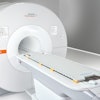Nearly half of outpatient MRI orders are delayed -- that is, performed more than 10 days from the date chosen by the referring provider, according to research published January 10 in the Journal of the American College of Radiology.
It's crucial to mitigate the factors that cause these delays -- which negatively affect patient care, wrote a team led by Ronilda Lacson, MD, PhD, of Brigham and Women's Hospital in Boston.
"The sheer volume of medical conditions where advanced imaging, including MRI, plays a central role is staggering -- from appendicitis to stroke to cancer diagnosis and staging," the authors noted. "Therefore, timely access, performance, and interpretations of an advanced imaging examination is critical for patient care."
Lacson's group assessed the timeliness of outpatient MRI exams via a socioecological model approach and evaluated multilevel factors associated with delays by conducting a study that included 97,160 outpatient MRI exams ordered between October 2021 and December 2022. The investigators measured mean order-to-performed interval in days and prolonged order-to-performed interval (defined as more than 10 days); they also assessed patient demographics and social determinants of health and radiology practice- and community-level factors associated with delayed MR imaging.
Almost half (48%) of MRI orders had a prolonged "order-to-performed" interval, with a mean interval of 18.5 days. The group found the following factors associated with delayed MR exams:
| Factors associated with delayed MRI exams (i.e., more than 10 days after exam request) | ||
|---|---|---|
| Factor | Odds ratio (with 1 as reference) | p-value |
| Having public insurance | 1.11 | p < 0.001 |
| Being female | 1.11 | p < 0.001 |
| Being from a high area deprivation index (ADI) quintile | 1.7 | p < 0.001 |
| Radiology subspecialty (cardiac) | 1.71 | p < 0.001 |
"In this retrospective assessment of delays in outpatient MRI performance, close to 50% of outpatient MRI orders were delayed … [that is,] performed more than 10 days from the order expected date selected by ordering providers in the EHR," the group reported.
These patient and radiology practice factors that appear to cause MRI exam delays must be mitigated -- especially among patients with higher ADI scores, according to the authors.
"Addressing disparities in patients with higher ADI will need to include systemic approaches to multiple socio-economic factors that contribute to non-equitable access to MRI examinations such as staff training for enhancing patient communication, access to patient navigators trained in finding local resources to assist patients, and programs addressing transportation barriers to outpatient imaging," they concluded.
The complete study can be found here.




















